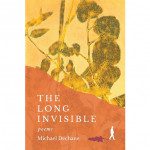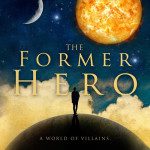 I read the NY Times runaway bestseller Gone Girl last month.
I read the NY Times runaway bestseller Gone Girl last month.
There were plenty of other things I could have read. It’s not like I’ve read everything of note, every Murakami book that has been recommended, every Franzen, Eugenides, Eggers, Gaiman, Chabon. I’d like to read Marilyn Robinson’s new one sometime. But there are even books by McCarthy, Faulkner, Steinbeck and Hemingway that I have not read. I’ve got a lot of work to do. I’m trying to work in Pat Conroy’s Prince of Tides, which was highly recommended. There are many British novels that would draw universal gasps of horror if I told you I’d not read them. And there are the Russians that I would like to read again, most of them in fact.
But in a whimsical moment, having heard from other author-types that it was fan-TAS-tick, I got Gone Girl and read it. Here’s what I have to say about it.
I cannot remember the last time I found it so hard to lay a book down. Very often the chapters would end with an exquisite hook, painfully well-placed, and I had to sit still and read one or two more chapters. The first 7/8 of the book was like this in almost every chapter. Never have I been captivated by such suspense. It was thrilling.
This has to have been because the two main characters, a husband and wife, were so well crafted that I deeply cared what happened to them. Congratulations to Gillian Flynn for her fine grasp of that art of storytelling.
Not only that, but the book made me think about what kinds of things make a bad husband. Nick Dunne was a careless, self-centered, and shallow husband. It made me circumspect, the way I think all good fiction should do at least a little bit. It also revealed like no other book I’ve read the way a modern woman’s mind works, albeit a really messed up and psychotic woman. Her perspective on her husband, her responsiveness to him, her awareness of other women and their dealings with each other, her awareness of how the dating scene works, at least in Manhattan circles.
I couldn’t help but notice a number of similarities to my own novel, similarities that made my shoulders slightly droop when I realized someone else did what I did and wound up on the NY Times Bestseller list, and my book did not (yet). These include an opening chapter in which a girl is suddenly missing, a chapter-by-chapter variation of voice (1st person, 3rd person etc.), and roughly the same length. Even some of the characters reminded me of some of my characters. Some of these things I was very proud of, thinking that I had thought of them first, or at least developed them in an original way.
The book had a large amount of sex and sex talk. I was interested in the way it was presented. It was not really erotic, not sensual. Graphic but not especially salacious. There was a generous amount, but it was all very Gen-Y: frank, unrestrained, but fairly bored and cynical about it. The complete opposite of what I expect 50 Shades of Gray would be, I mean quite a bit of sex talk, but nothing forbidden or even private. Suitable to the story and characters, but with no literary or artistic style. I think most people would feel the narrator was giving “a lot of very personal information.” Like being stuck on a plane next to a hipster gynecologist.
Unfortunately, the last 1/8 of the book completely lost it for me. Gone was the suspense. Missing was the grand finale that it should have been building up to. Finished was all the doom and destiny and the new strange people and the clever plot. I’ll just say it was a logical ending and leave it at that. That is very faint praise.
The whole thing made me reflect somewhat dismally on the plight of truly gifted writers (not me, but truly gifted writers). I know they are out there, writing things that are timely, full of wisdom and perspective, subtly leading the reader into new areas of thought. But in a market that has trimmed all the fat, there is no room to patronize the poor-selling but important book on the backs of 10 big-selling romance novels. Every book must be a big seller.






